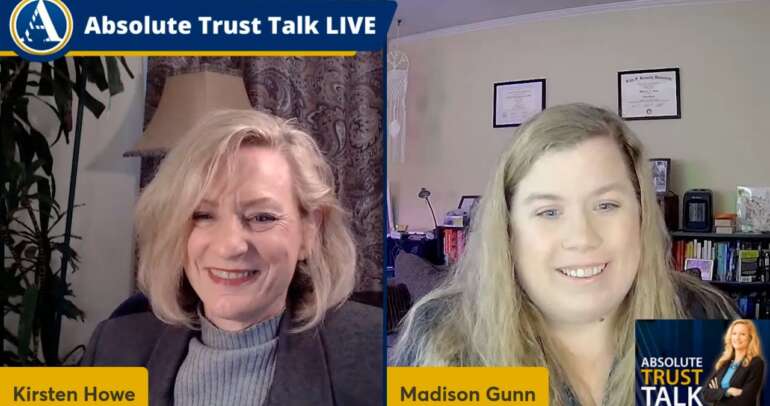We all think that we can help our parents as they get older and even as they begin to lose capacity. This may be true, but if a parent with dementia can no longer be safe at home, is combative, or can no longer manage their finances or basic needs, what do you do?
Many people rely on estate planning tools such as a durable power of attorney or advanced health care directive so that a child or family member can act on their behalf if they become incapacitated. These are great tools, but sometimes they are inadequate for certain situations, or are simply never put into place.

Bob and Sally Smith completed an entire estate plan with their attorney and executed a family trust, wills, powers of attorney and health care directives. They thought they were set. Bob was diagnosed with dementia and Sally had the doctor complete paperwork so she could use the durable power of attorney to access Bob’s retirement accounts, and other assets not in the trust. Everything was going smoothly…until it wasn’t. As Bob declined, he began making transfers and withdrawals from his retirement accounts. He would receive cash and then misplace it. Sally couldn’t find the money, and she could not stop him from accessing his accounts.
A durable power of attorney only grants access to a person chosen by the owner of an asset, it does not restrict the owner’s ability to access their own assets. The only ways to stop a person from being able to access and manage their own finances is either through their own acquiescence or though a court ordered process called a conservatorship. Since people with dementia are often not willing to give up their rights, despite their decline, a conservatorship can be the best way to go. This would also be the right tool if your loved one never did any estate planning at all.
A conservatorship is a court process that, once approved, has a judge sign an order giving someone the legal right to make decisions for a family member who no longer has capacity. It allows the conservator (the caretaker or family member in charge) to gain access to the incapacitated loved one’s finances and medical records so that the best decisions can be made on their behalf. It is a court supervised process in regard to the finances and medical decisions and an accounting must be provided to the court on an ongoing basis to show that the conservator is not misappropriating any of the funds. A care plan may also need to be provided to the court depending on the situation.
Obtaining a conservatorship, while straightforward in process, is not always simple in its execution. An attorney is usually needed, and the court will appoint another attorney on behalf of the person without incapacity because the court is not willing to so easily strip a person of their rights. There will be a court appointed investigator to make sure that everything and everyone is on the up and up, and there will be a hearing that is publicly noticed and notice will be sent to relatives of the incapacitated person so everyone knows what is going on. If a family is divided or does not get a long, this can be an arduous process. It is always in the best interest of the family to get along and have the needs and interests of the incapacitated in mind so that the process can run smoothly.
A conservatorship can prevent an incapacitated person from falling victim to scams and elder abuse and can protect them from harming themselves if they need to be placed into an appropriate care facility or have a caregiver around twenty-four hours a day. Conservatorships can be particularly useful for individuals who were born with disabilities or acquired disabilities prior to becoming an adult. Once disabled children turn eighteen, their parents do not retain all the rights they had as guardians when their children were minors. Because capacity never existed, they could not execute powers of attorney or health care directives upon attaining adulthood, and the conservatorship becomes more and more necessary.
Conservatorships can be an excellent protection tool for family members of people with dementia and should not be discounted just because it seems difficult. A care plan or estate plan should be attempted first, but if needed, an emergency temporary or permanent conservatorship can be obtained if your loved one is being financially exploited in any way or if they truly lack the capacity to care for themselves personally or financially and have not appointed anyone to do that for them.
[Ad] Walnut Creek Area neighbors! The time is now to protect yourself, your family, and the assets you’ve worked so hard for. If you don’t have an estate plan in place or need help updating the one you already have, we can help. California law is our specialty, and we will make sure you and your loved ones are prepared for the future starting now. If you have questions about our services or the content in this blog, please don’t hesitate to contact our team by calling 925.943.2740 or by sending an email to info@absolutetrustcounsel.com. Or, if you’re ready to get started, get your discovery call on the books by visiting our calendar to pick a date and time that works for you. We can’t wait to speak with you.
Looking for more information on probate? Visit our probate resource page at https://absolutetrustcounsel.com/practice-areas/probate/ for guidebooks, podcasts, videos, and more!




